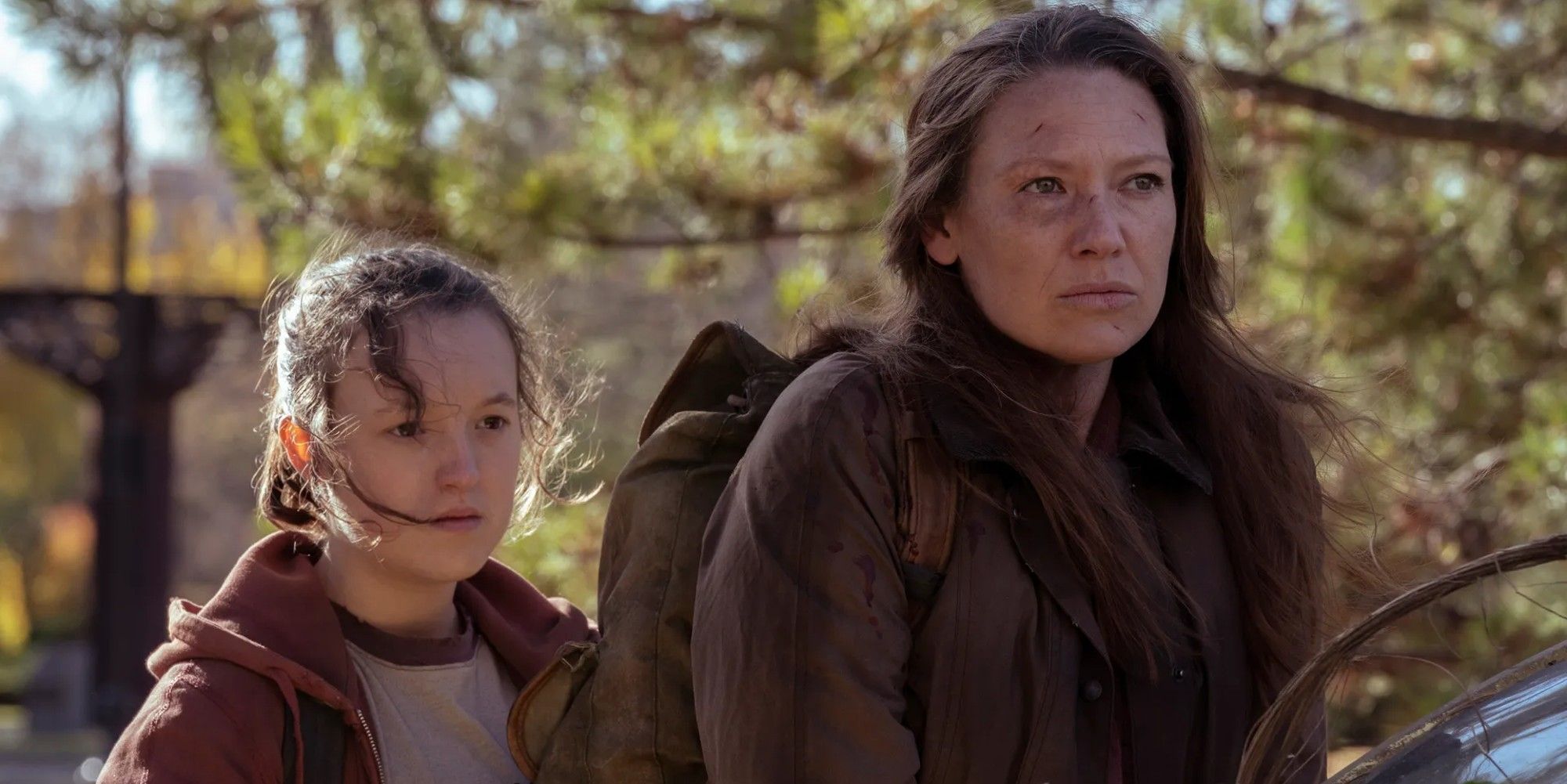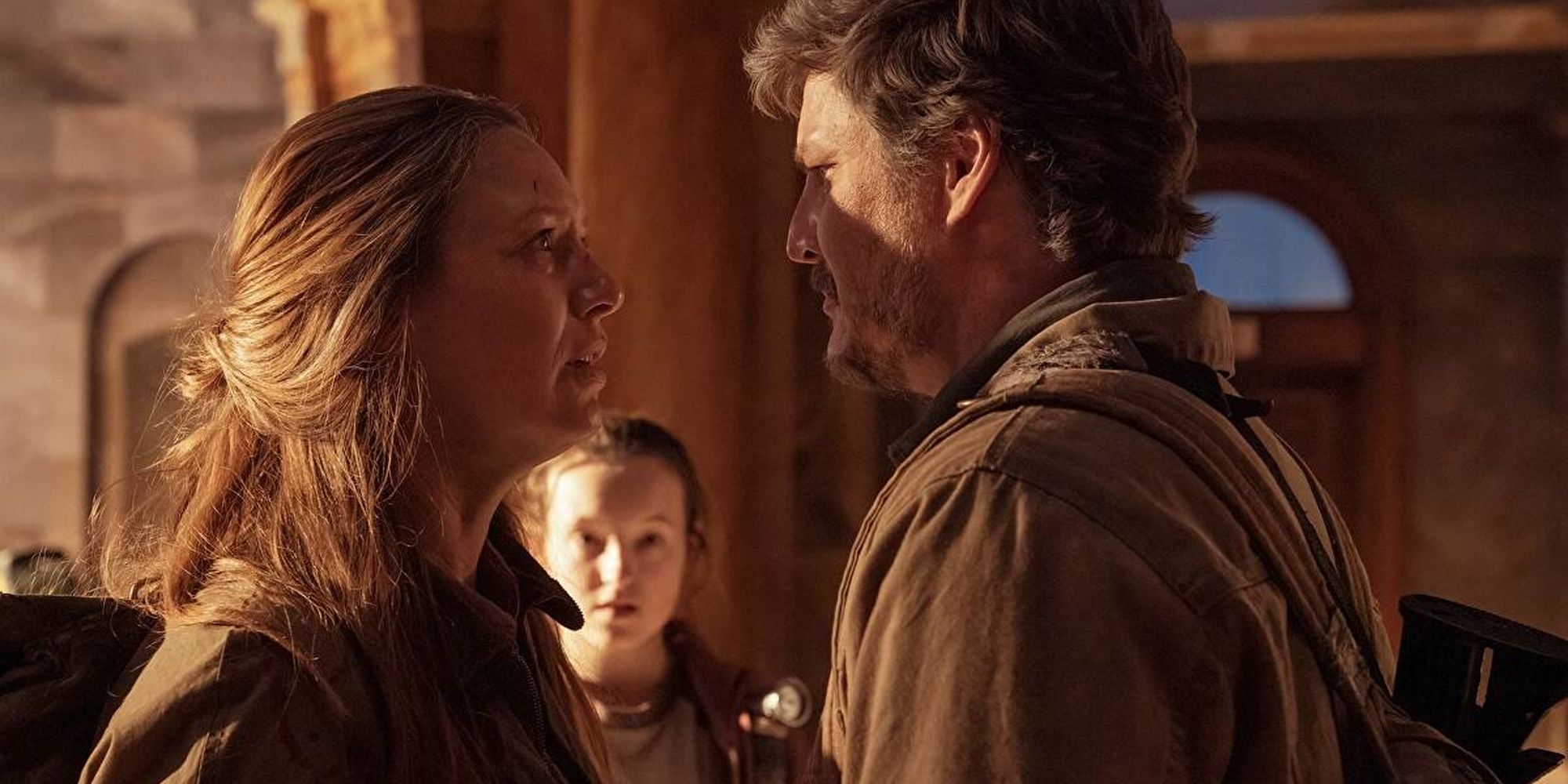We’re all still losing it over Tess’ zombie death kiss right? Instead of going out in a blaze of tragic glory against a wave of heavily armed FEDRA soldiers, HBO’s The Last of Us has one of the story’s strongest and most short-lived female characters share a tendril-laden smooch with her fellow infected before blowing her and everyone else to smithereens. It makes for uncomfortable viewing, and thematically reorients her arc into one of passive submission, all consent taken away from a woman who wants so hard to go down fighting for a just cause.
I understand where Neil Druckmann and Craig Mazin are coming from with this change, their desire to express the Cordyceps infection as more of a natural hivemind, each new victim of the virus blending into a singular mass of individuals whose only desire is to spread it further.
Tess is powerless as her body becomes overwhelmed by the desire to stand alongside the other husks, content with loitering around in the dark and springing at whatever poor soul happens to stumble across them. It’s a brutal existence, lined with a peaceful ultimatum the second episode spends much of its time trying to cement. The show’s opening monologue explains the virus in this manner, foreshadowing the drastic change from the game. Many of us knew Tess’ death was coming, and the show takes advantage of that expectation, using it to bend how infection is viewed in this world as a depressing facet of normalcy humanity has long surrendered to.
Even though I admire the execution of this moment, especially in how it doubles down on Tess’ anger and resentment towards throwing her life away using familiar lines and shots, her agency being pulled away at the very last moment sucks. In the game, Tess is a much more aggressive, resourceful, and spiteful individual, one whose capacity for love has been torn away by decades of doing terrible things to survive. She and Joel were once in love, yet having to kill, trick, and betray almost everyone they meet to avoid a knife in the back made it near impossible to do so again. The show reverses that to great effect, although this in turn makes her a far less driven character, one who goes along with escorting Ellie right up until it spells her end. Only then does she become vocal and express how much it could all mean.
Tess talks about doing the right thing by keeping Ellie alive, in the hope it will reverse all the things she and Joel have done. A tepid fragment of forgiveness to those lost in their wake, and that something can be made of all this. Joel asks to go home, giving up on the mission at the first given opportunity, only for Tess to scream there isn’t anywhere worth returning to. In her eyes, there never has been - just a warm body to rest alongside before rising to waltz through the misery all over again. In the game, her death is worth something, it’s about her life having been worth something, but the show views it as a catalyst to inner forgiveness, that maybe this is what she and Joel have always deserved.
HBO leaning further into nihilism and regret with Tess’ character doesn’t surprise me. I even welcome it, and how it shows a darker side to these characters the first game perhaps wasn’t ready to explore. Putting its groundbreaking narrative aside, most of your time in The Last of Us is spent murdering random goons and zombies before stumbling into the next cutscene, with dialogue fleshing out the world and characters during the quiet moments. Joel and Ellie are two vulnerable people who struggle in this episode to take down two infected, let alone an army of them. This reliance on violence wasn’t feasible, so of course the show needed to put more on the shoulders of everything else. Most of these decisions have been for the better, although Tess sadly isn’t one of them.
Her pursuit of Robert and revenge for screwing her over in the game is replaced with a brief conversation before the supporting character is murdered off-screen. Tess is no longer given a chance to prove herself. Combine this with her subdued attitude towards death and oddly gendered kiss of infection, and it turns an otherwise fierce woman into one who gives her life away for all the wrong reasons. Tess lived and died fighting in another medium, while here she’s caught in a fatal embrace that views her as a victim, not a redeemed villain righting one final wrong before it all fades away.



